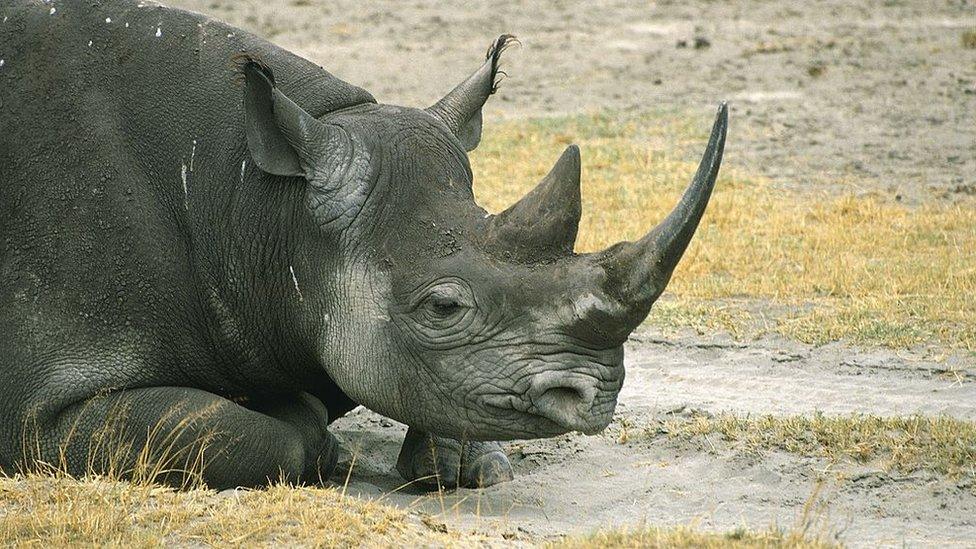Endangered animals: Meet Chester Zoo's newest black rhino
- Published
- comments
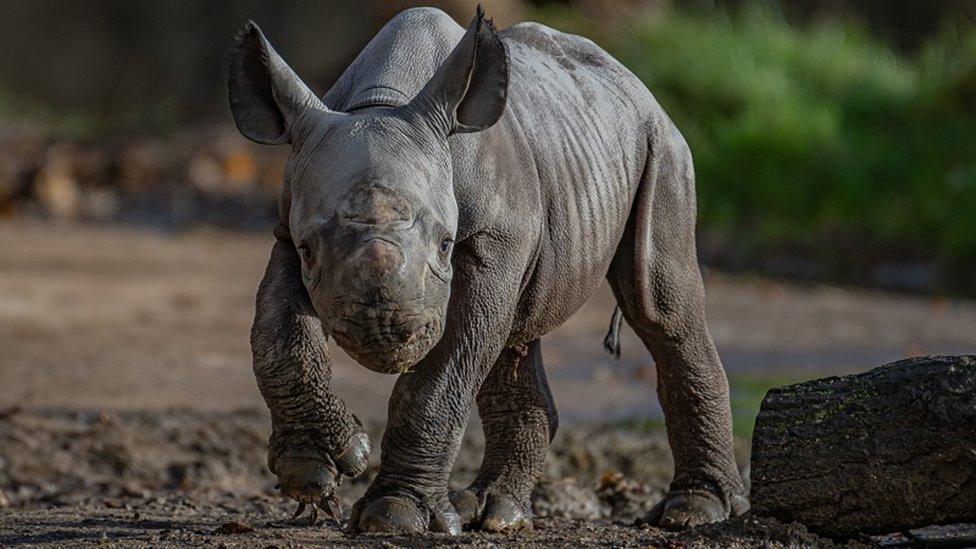
Rhino team manager Emma Evison said the calf was "very inquisitive and full of energy"
One of the rarest mammals on the planet, a black rhino, has just been born at Chester Zoo.
On November 12, one of their eastern black rhinos called Zuri gave birth to a female calf in the middle of the day, after a 15-month-long pregnancy.
The zoo said it's actually "quite unusual" for rhinos to give birth in the daytime, but it meant they were able to capture the whole process on camera.
Rhino team manager Emma Evison said being able to see the calf come into the world was "just the most incredible privilege".
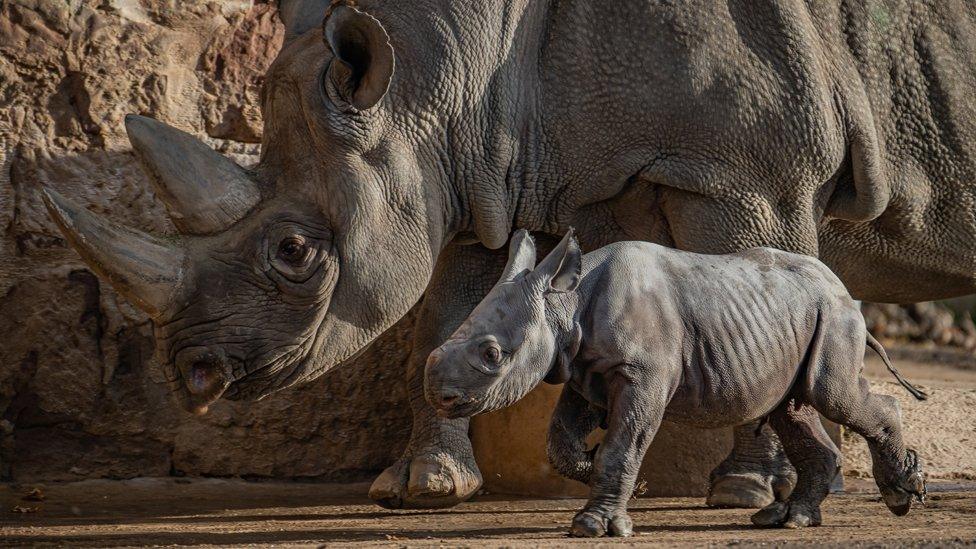
Ms Evison said the eastern black rhino was "a species that... has been hunted down and poached"
The calf doesn't have a name yet, but the keepers at Chester Zoo will put forward name suggestions that are related to where the species is from, and they'll vote on a name over the coming weeks.
There are three types of black rhino: the eastern, the southern central and the south western
Unlike white rhinos which graze on short grass, black rhinos have special lips that allow them to pluck food from trees, shrubs and bushes
They make lots of different sounds to communicate with one another - they snort to express anger and make sneeze-like calls when sensing danger
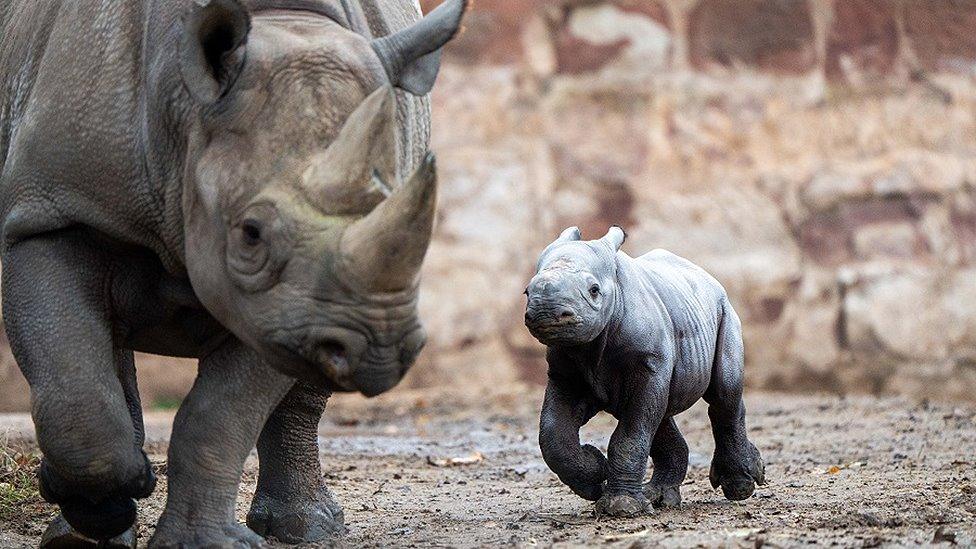
The calf's birth will help global efforts to prevent the endangered species from disappearing, the zoo said
The zoo said for years the species has been listed as critically endangered, with fewer than 600 of the rhinos remaining in the wild across Kenya, Tanzania and Rwanda.
One reason for their low numbers is because people called poachers illegally hunt them for their horns, which are very valuable in some parts of the world.
But now, it looks as though numbers are on the up - their numbers across Africa increased in both 2020 and earlier this year, too.
A critically endangered species is defined by the International Union for Conservation of Nature as a species facing an extremely high risk of extinction - becoming wiped out - in the wild.
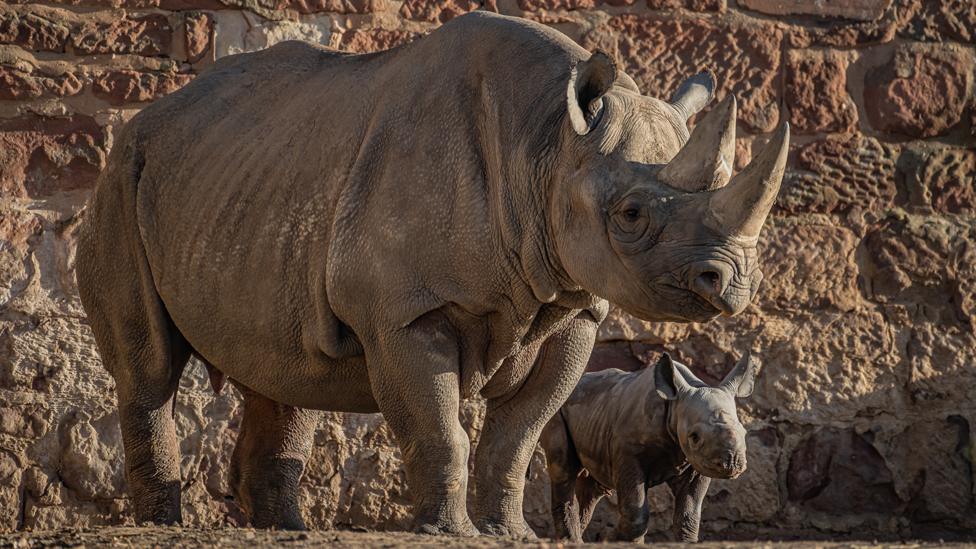
Apparently the pair have been "inseparable"
Emma said that "This precious newborn's arrival is another positive step in safeguarding the species," and that it's now really important mum and baby spend lots of quality time together.
"So far, the pair have been inseparable and the little one is feeding regularly and already gaining in size and weight."
She added that the calf was "very inquisitive and full of energy", which was "just brilliant to see".
Watch Defending the Rhino: A Newsround Special
- Published9 June 2022
